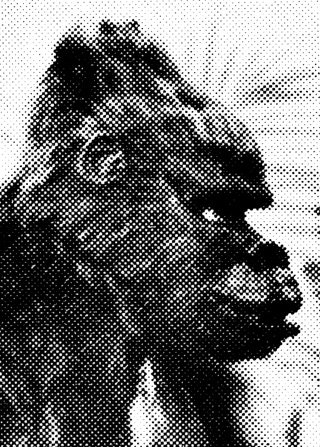Lutz Dammbeck
dal 17/5/2010 al 25/9/2010
Segnalato da
17/5/2010
Lutz Dammbeck
Sprengel Museum, Hannover
Re_Re-education Having started out as a fine artist, Dammbeck began to experiment with animation film techniques in the early 1970s. Then, in 1982, Dammbeck started to bring different materials and media together, combining images, text and dance to realise a continually evolving work of art that was also, at the same time, an archive and a collage. In addition, he was also able to realise a number of experimental, internationally successful documentary films.

Having started out as a fine artist, Lutz Dammbeck (born in1948) began to experiment with animation film techniques in the early 1970s. Then, in 1982, Dammbeck started to bring different materials and media together, combining images, text and dance to realise a continually evolving work of art that was also, at the same time, an archive and a collage. He continues to work on this project to this very day.
Dammbeck perceives himself as an assembly technician, combining photographs, newspaper clippings and other archive material which he then collects, re-works and puts together to realise what he refers to as “The Archaeology of Memory“. Since the early 1980s, he has been primarily concerned with examining not only Modern and contemporary construction drawings, but also evoking the utopias, desires and intentions that are typical of those said drawings. In addition to creating installations and collages, he was also able to realise a number of experimental, internationally successful documentary films.
We are pleased to present some of these films in a room that has been created in the museum's Space for Photography in a site-specific installation which is intended to foster looking repeatedly and comparatively, in an analytical manner, at these moving pictures. The films shown therein delve into the relationship between fine art, the humanities, technological developments and popular culture over the course of the 2nd half of the 20th century.
Image: Lutz Dammbeck, Overgames, 2010 (Still)
© Dammbeck-Production / VG Bild-Kunst, Bonn 2010
Press contact:
Isabelle Schwarz, Presse- und Öffentlichkeitsarbeit
T +49 (0)511 168-4 39 24 ; Fax +49 (0)511 168 4 50 93 presse.smh@hannover-stadt.de
Opening 18. May 2010, 6.30 pm
Inka Schube, curator, will speak
Sprengel Museum Hannover
Kurt-Schwitters-Platz, 30169 Hannover
Collections & temporary exhibitions
Closed on Mondays
Tuesdays: 10 am – 8 pm
Wednesday – Sunday: 10 am – 6 pm
Entrance fees:
Euro 7, reductions Euro 4
Free entrance on friday
Free entry for children aged 12 and under



